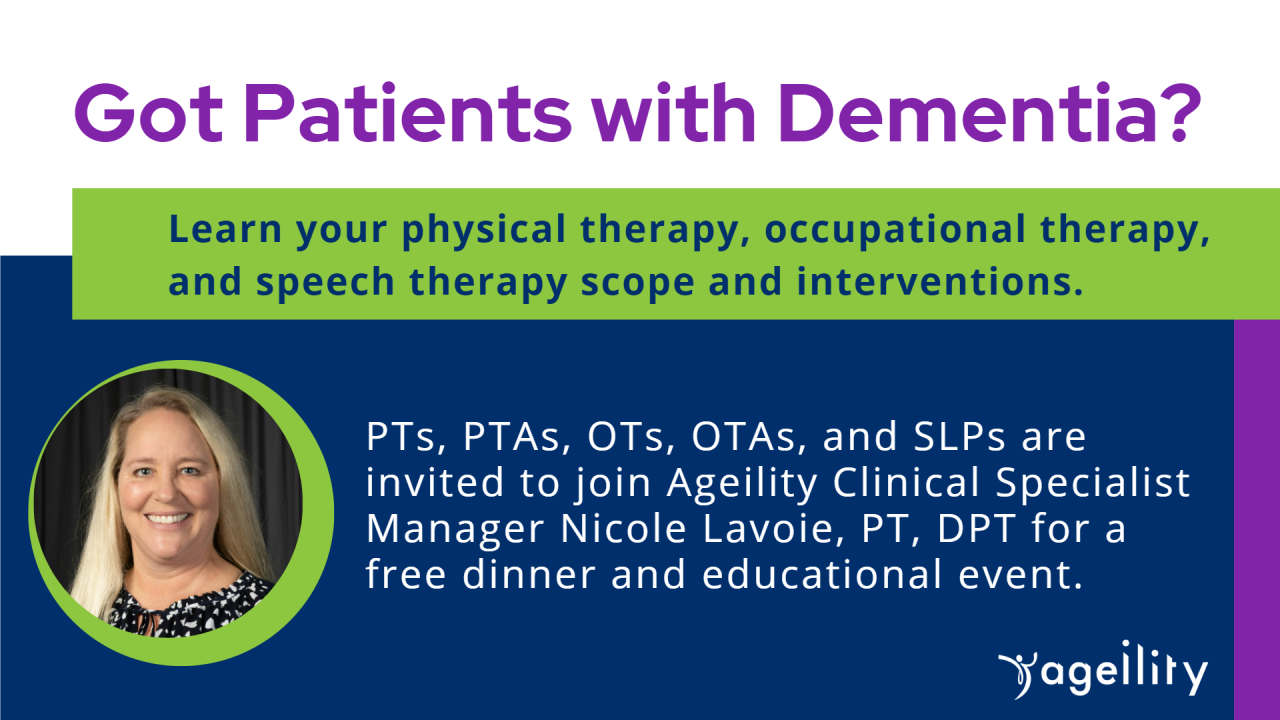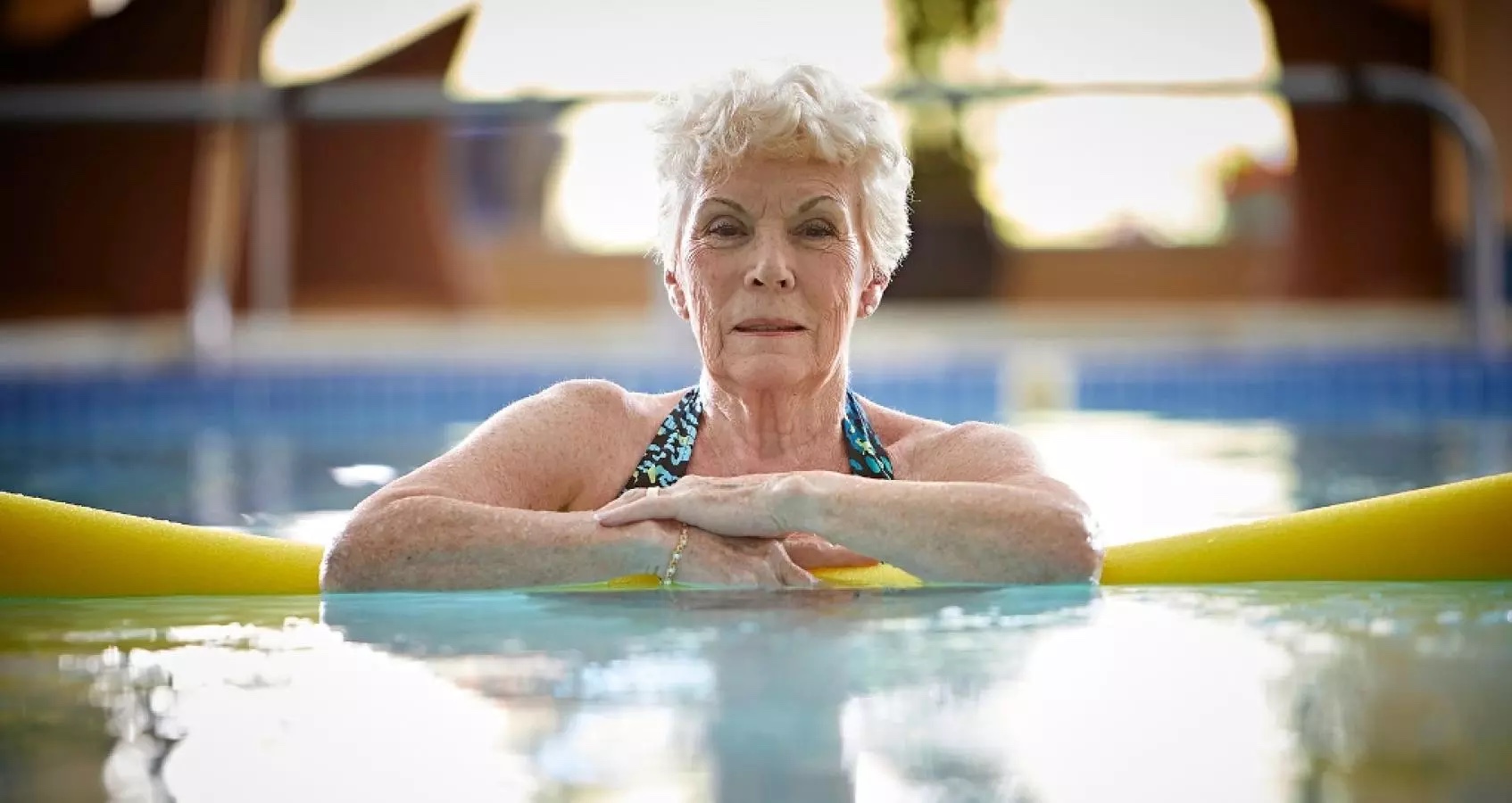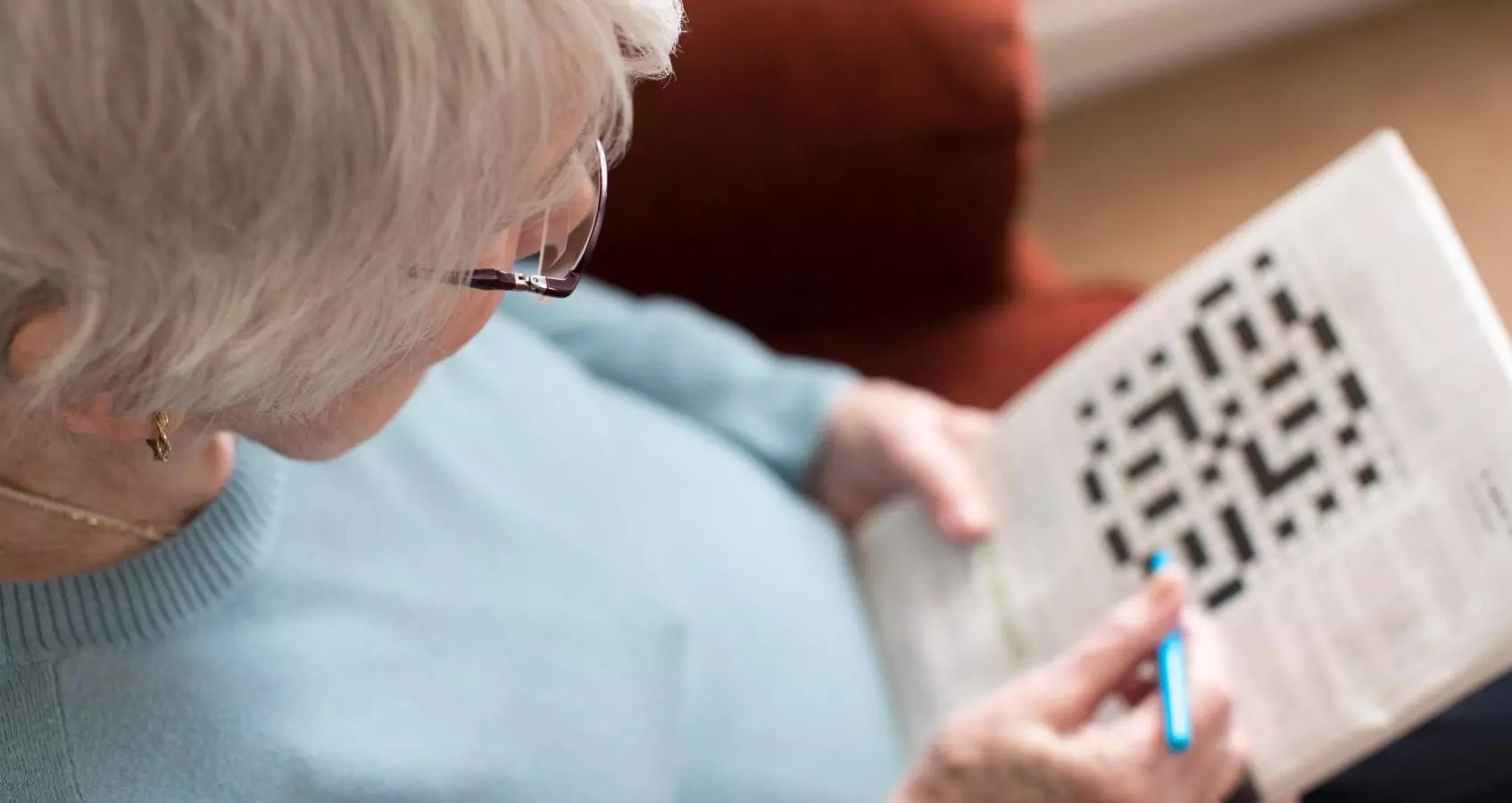Understanding dementia scope and interventions with Ageility
December 15, 2022As one of the nation’s leading providers of inpatient and outpatient therapy, Ageility’s mission is to reimagine a world in which quality of life is ageless—going beyond rehabilitation to support older adults with fitness to build strength and confidence; speciality programs such as fall prevention and pain management; and more. Rehabilitation therapy is important for older adults with cognitive loss by focusing on remaining functions and abilities in a supportive environment.
In physical therapy, occupational therapy, and speech language pathology the path to a patient or client’s goals of relearning to walk, resuming daily activities that are meaningful and valuable, and communicating with others can feel straightforward—build up strength one step at a time. But if your patient is an older adult with dementia, that path may not be so clear.
“Got Patients with Dementia?” is a new series of free dinner and educational presentations hosted by Ageility that gives physical therapists, occupational therapists, and speech language pathologists the opportunity to hear from Ageility’s Clinical Specialist Manager about interventions for dementia in physical, occupational, and speech therapies.
The inaugural “Got Patients with Dementia?” presentation featured Ageility Clinical Specialist Manager Nicole Lavoie. For the past 29 years, Nicole’s career as a physical therapist has focused primarily on older adults in both skilled nursing and outpatient settings.
“Even as a young child, I always knew I wanted to help people. Combine my desire to help people with a very sports-oriented family, and you get physical therapy.” she said. “What I enjoy most about my role in Ageility is the ability to make a difference in someone’s life every day. Whether that is through my own patient interactions or through the services provided by someone who has learned new skills from me.”
Nicole’s presentation included frameworks for addressing cognition in senior living communities, information about the Allen Cognitive Disabilities Model, treatment interventions, and how to highlight the medical necessity of these services.
“There was great discussion related to each participant’s experiences with patients as well as their own family members who were having cognitive changes,” Nicole said.
These presentations are not exclusive to Ageility team members—they’re open to all who are interested. Alyssa Ford, Ageility’s National Director of Clinical Operations, said, “The presentations were designed to build awareness about Ageility’s life changing services, give back to clinicians in local communities, and spread valuable knowledge.
“Clinicians are lifelong learners who are always seeking out educational opportunities,” Alyssa said. “Ageility has the ability to provide high quality education within a comfortable environment.”
The next “Got Patients with Dementia?” dinners and presentations are:
- Wednesday, Jan. 18, 2023 from 5:30 pm to 8 pm at Sierra Del Sol Senior Living in Tucson, Ariz. RSVP here.
- Thursday, Jan. 19, 2023 from 5:30 pm to 8 pm at Pueblo Norte Senior Living in Scotsdale, Ariz. RSVP here.
To learn more about Ageility’s holistic rehab services for older adults, contact [email protected] for more info or search for an Ageility location near you. Ageility is a leading national provider of comprehensive rehabilitation therapy and fitness designed exclusively for older adults and senior living communities. Join our team by exploring career options near you.





